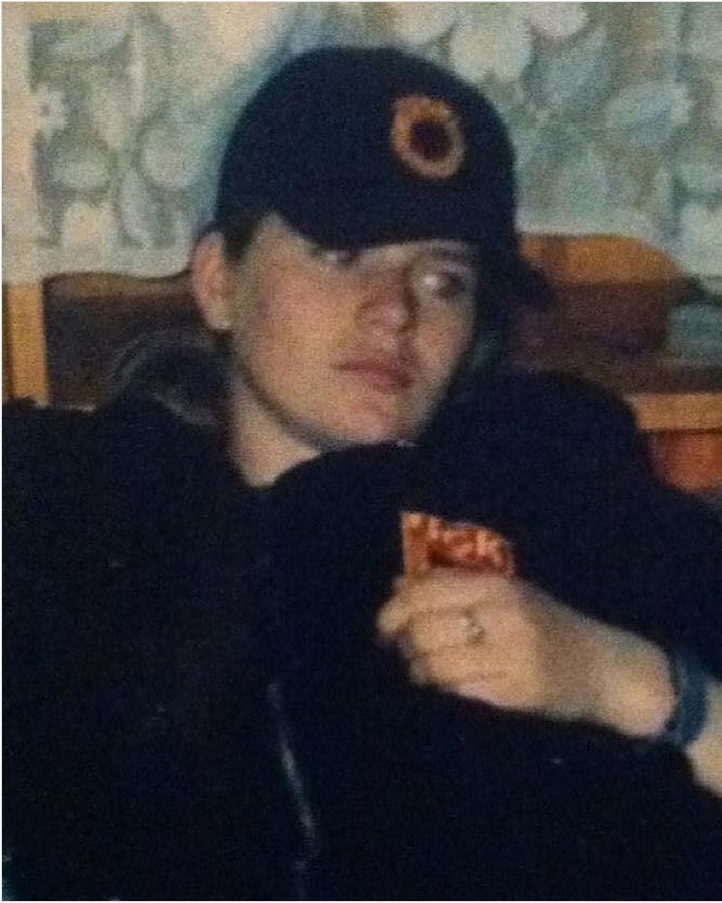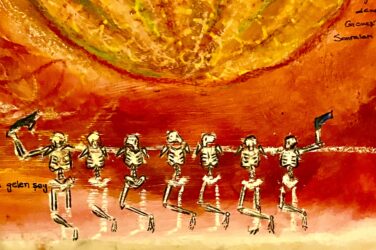Representations of women in war, particularly in media, often tend to be simplistic readings of their roles and positions in such contexts. In addition, state-centric and western approaches to war often fail to properly grasp the experiences of resistance among oppressed and colonised peoples, especially of those in guerrilla movements. E&M’s author Nisa Sherifi aims to share the lessons she learned on this topic after interviewing Mimoza Shala, a former guerrilla soldier of the Kosovo Liberation Army, who is currently a municipal deputy and political advisor in the city of Gjakova.
In the previous part, Mimoza explained her path to war, and when it began for her. The end of the article concludes with her words: “the mobilization came later, but for me, the war started much earlier.”
However, our discussion did not end there, as there was much more to say, and no matter how much will be said and written here, it will never fully capture her experiences of the Kosovo war.
Continuing her story, she stated: “In any case, as the saying goes, better late than never. It happened, and the initial goal of ridding Kosovo of Serbian forces was accomplished.” Reflecting on her wartime experiences and motivations, she declared that she “sleeps in peace,” and that she would “not change the experience she had in the KLA for the world.”
Throughout our interview, Mimoza made sure to underline the specificity and reality of the Kosovo war; of the fact it was guerrilla warfare, and that it was a war of liberation.
“When I was once interviewed by some American soldiers, by some veterans, one of them kept comparing himself to me throughout the interview,” she recalled. “At one point I told him to please stop and not do that. It’s true that we had both fought in wars; it is the same term, “war,” but the context and meaning is completely different. I’ve never had any regrets whatsoever, not even for a second, and I never felt like a killer in my uniform, even though I carried a weapon.”

Indeed, an asymmetric war of defense and liberation is very different from those waged by world powers and imperialist states, which do not have comparable experiences of oppression and colonization. Furthermore, the KLA fought a guerrilla war, which in contemporary history emerged as a tool of resistance against such powers and their conventional militaries.
Guerrilla warfare is usually a response or resistance to organized armies of empires, invading forces, or central governments, and employs tactics that exploit the weaknesses of such forces. For the most part, asymmetry lies at the heart of the emergence of these movements. When, because of a superiority in numbers, experience and material capability, an opponent is unbeatable in conventional armed combat, then guerrilla tactics and strategies such as sabotage and hit-and-run ambushes become the most effective form of armed resistance. So, it is no surprise that we see the adoption of guerrilla tactics by anticolonial liberation movements across the world, such as in Algeria, Vietnam, Cuba, Ireland, etc.
As this might suggest, a political cause of liberation, often tied with self-determination, tends to be at the core of such movements. Another important building block of a successful guerrilla liberation movement is often one or a few leaders who embody the cause and bring it forward. These leaders need to not only be brilliant in tactics and strategy, they must also be inspirational and nourish the cause with their image, often becoming cult personalities. It is natural that the likes of Amilcar Cabral, Thomas Sankara, and Che Guevara have been leaders of such movements.
What characterizes Mimoza’s feelings was also the certainty in her actions and cause.
Her participation in the KLA did not cause her any regret or feeling of guilt and shame, as is the case of many soldiers from world powers.
In fact, she emphasized that it was quite the opposite. “In every moment I felt like a defender,” she said. “Our entire goal was, in the words of that saying I really like, figuring out ‘how to kill death.’ How to kill death, and liberate ourselves. That’s it.”
How to kill death, and liberate ourselves. I couldn’t get these words out of my head for weeks; nothing I’ve read or seen captures the mentality of guerrilla warfare and resistance against oppression and colonialism quite as well.
The asymmetry that so often characterizes these kinds of movements echoed throughout the interview. The empowerment and choice to grab arms is a real solution to an otherwise unbearable situation. “When you are not armed, and you see that nothing is happening to change the situation, that is a terrible war,” she said.
When I interjected, saying that it must have been like a slow death, she responded that “it wasn’t even a death. Because death is a release, an end, to some extent. But this kind of war, I don’t even know exactly how to define it.” Killing death itself, therefore, becomes the real political goal, articulated as liberation and self-determination.
After understanding the path to war and the motivations behind guerrilla warfare, the next article will look at the experience of the war itself.
Feature picture by Sergeant Craig J. Shell, USMC, 1999, featuring a KLA march.










